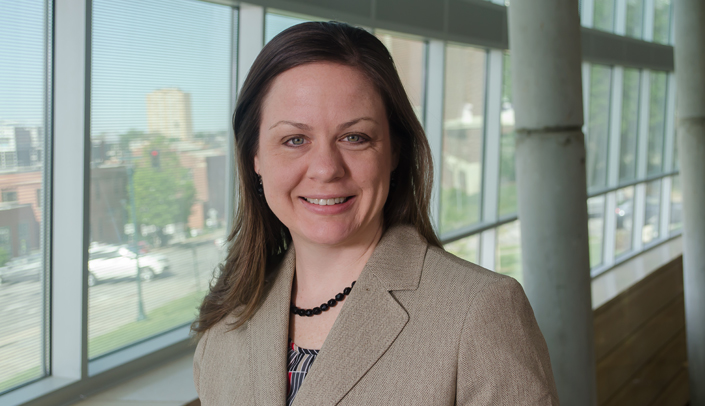Interprofessional teams of health care providers can now apply to the Robert Wood Johnson Foundation (RWJF)
Clinical Scholars Leadership Program that will allow the chosen team to tackle what the foundation calls “wicked” health care problems.
Information session
An information session will be held at noon on Thursday, Jan. 23, in Poynter Hall, Room 4002. Interested participants can join in person or through Zoom (lunch will be provided to the first 30 participants).
Register for the event (for both in-person and Zoom attendance).
For information about the Clinical Scholar program, call Katie Brandert, director, Great Plains Leadership Institute, and manager, Workforce Development and Leadership Programs, Office of Public Health Practice.
UNMC’s current team will graduate this fall. The interdisciplinary team members are:
- Charity Evans, M.D., associate professor, surgery.
- Ashley Farrens, trauma program coordinator.
- Jennifer Burt, Ph.D., assistant professor and fellowship coordinator, MMI Psychology.
Their project: “Dusk to Dawn: Hospital Initiative to Reduce Community Violence,” is a hospital-based violence intervention program that teaches vulnerable youth effective coping skills. The anti-gang curriculum focuses on goal setting, problem solving and identifying and negotiating risk/protective factors.
The RWJF Clinical Scholars Program is a funded national leadership program for clinically active health care providers from a broad range of disciplines. The program is supported by the Robert Wood Johnson Foundation as part of its national initiative to achieve a culture of health. Each year, up to 35 licensed health care providers are accepted into the program.
Eligible participants are licensed and clinically active health care providers who have been in practice at least five years. Examples of eligible occupations include providers trained as audiologists, dentists, dietitians, nurses, occupational therapists, pharmacists, physical therapists, physicians, pharmacists, social workers, speech therapists and veterinarians.
Applicants apply in multidisciplinary teams of three to five providers. Teams identify complex “wicked problems” compromising a culture of health in their communities and propose innovative, community-focused approaches to improve community health and health equity. Applications are due March 11 at 2 p.m.
Over the course of the three-year program, teams will:
- Receive funding up to a maximum of $525,000 for a five-person team.
- Design and implement a real-world project.
- Receive evidence-based and equity-centered training in leadership tools, policy, evaluation, community engagement, and other topics from national experts.
- Participate in semi-annual weeklong onsite trainings, reinforced by distance-based learning and executive coaching that allows them to stay in their jobs and participate from their home communities.
- Become part of a national network of leaders spanning sectors and disciplines in health care and beyond.
Upon completion, fellows will have the tools to:
- Advocate for positive change within their teams, organizations, and communities.
- Promote creative thinking, innovation, and thought diversity.
- Appraise, synthesize, and use evidence to guide practice and inform policy.
- Communicate, engage, and negotiate in a manner that creates win/win outcomes for all stakeholders.
- Understand their leadership style and increase their effectiveness.
